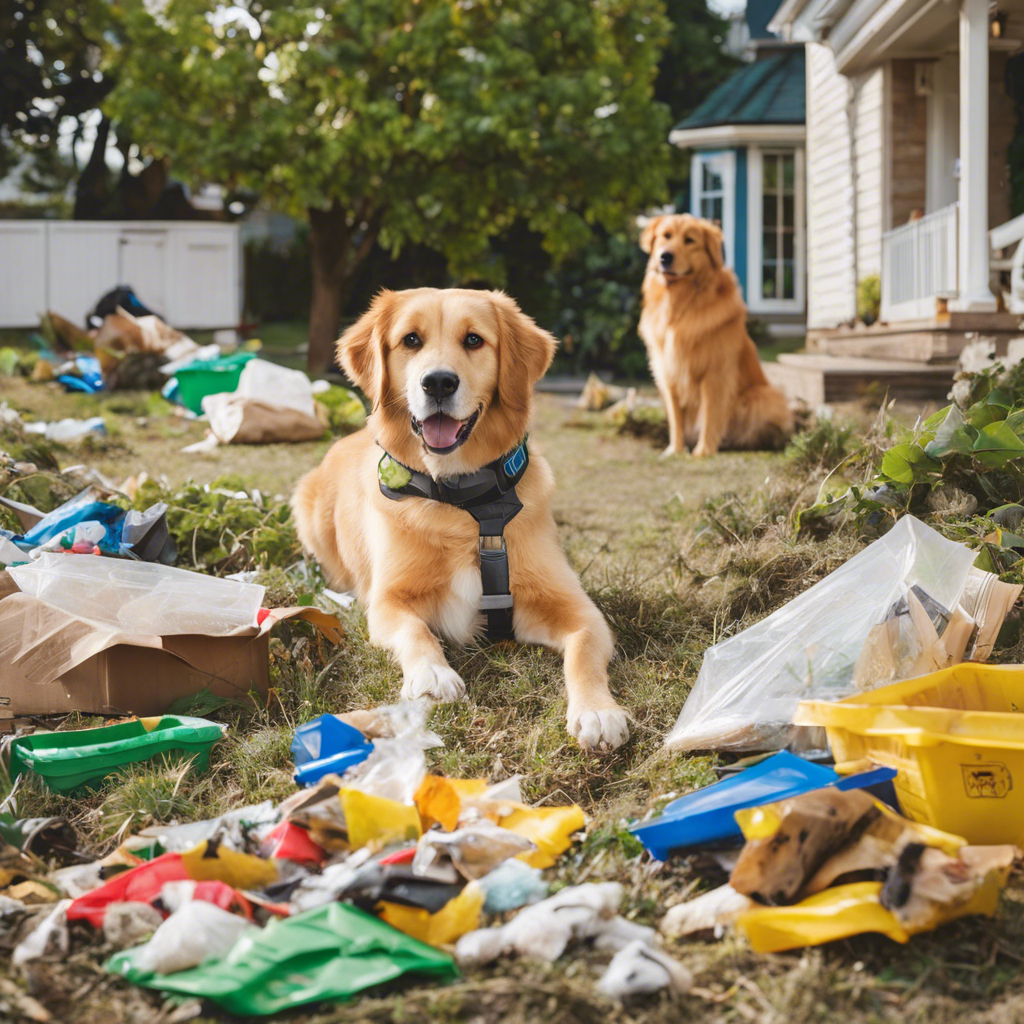Pet ownership impacts waste management, demanding responsible pet waste disposal and eco-friendly product choices.
As pet ownership continues to soar, so does the impact of our furry friends on the environment. The cute antics and unconditional love of pets often overshadow the less glamorous aspects of pet ownership, such as the significant environmental footprint they can leave, particularly in the realm of waste management. This article delves into the often-overlooked intersection of pet ownership and household waste management and explores strategies to mitigate the environmental impact of our beloved companions.
Understanding the Challenge
The Environmental Consequences of Pet Waste
Pet waste is a significant contributor to environmental pollution, with estimates suggesting that a single dog can produce approximately 274 pounds of waste per year. This waste, if not disposed of properly, can contaminate water sources and soil, posing health risks to both humans and wildlife. When it rains, the runoff can carry pathogens from pet waste into local water bodies, leading to harmful algal blooms and potential harm to aquatic ecosystems.
The Impact of Pet Product Choices
Beyond pet waste, the products we choose for our pets also have environmental implications. From pet food and treats to toys and bedding, the manufacturing, packaging, and disposal of these items contribute to our carbon footprint. The pet product market is vast, and the environmental impacts of these products are often overlooked in favor of convenience and cost.
Mitigating the Environmental Impact
Responsible Pet Waste Management
Proper waste disposal is the cornerstone of responsible pet ownership. Pet owners should ensure they scoop their dogs’ poop and dispose of it in designated pet waste bins or compost it. Composting is a sustainable method for managing pet waste, but it requires careful management to ensure the compost is safe for use. Pet owners can also explore pet waste-to-energy systems, which convert pet waste into energy and fertilizer.
Eco-Friendly Pet Product Choices
Pet Food and Treats
Opt for organic, locally sourced pet food and treats to reduce the carbon footprint associated with transportation and processing. Look for packaging that is recyclable or made from recycled materials.
Pet Toys and Accessories
Choose durable, long-lasting toys to reduce waste. Consider buying second-hand items or those made from sustainable materials like bamboo or recycled plastic. When it comes to bedding, select washable options to minimize disposable waste.
Innovative Solutions for Responsible Pet Ownership
Community Initiatives
Numerous communities are implementing innovative solutions to tackle the environmental impact of pet ownership. These include:
Pet Waste Composting Programs
Community-based composting programs specifically designed for pet waste, ensuring proper management and safe reuse of the compost.
Pet Waste-to-Energy Systems
Initiatives that employ technology to convert pet waste into renewable energy and fertilizer, presenting a sustainable solution to waste management.
FAQs
1. How can I compost pet waste safely?
Compost pet waste in a dedicated pet waste composter, ensuring it reaches the appropriate temperature to kill pathogens. Do not use this compost on vegetable gardens.
2. Are there eco-friendly alternatives to traditional pet waste bags?
Yes, biodegradable or compostable pet waste bags are available, offering a more environmentally friendly option for waste disposal.
3. How can I encourage my community to adopt sustainable pet waste management practices?
You can advocate for and support community initiatives like pet waste composting programs and waste-to-energy systems. Educating your neighbors about the environmental benefits of these practices can also foster a culture of responsible pet ownership.
Conclusion
Pet ownership is a joy and a privilege, but it also comes with environmental responsibilities. By adopting sustainable waste management practices and making mindful choices about pet products, we can significantly reduce the environmental impact of our pets. From proper waste disposal to eco-friendly product choices, every small action contributes to a greener and more sustainable future for both pets and their owners.
External Links
1. The City Scoop: The Poop on Dogs
2. Eco-Friendly Pet Products
3. How Big a Climate Problem Is Your Dog
